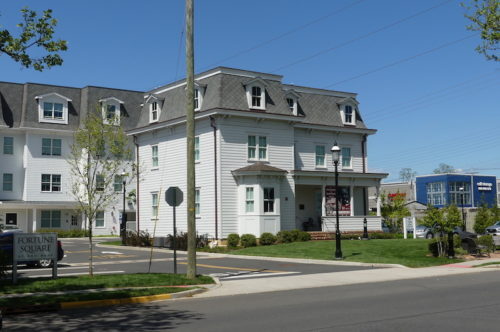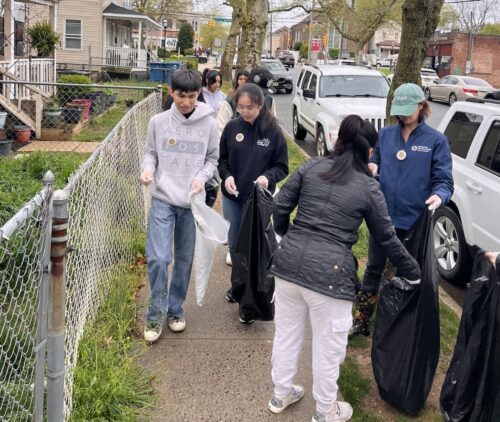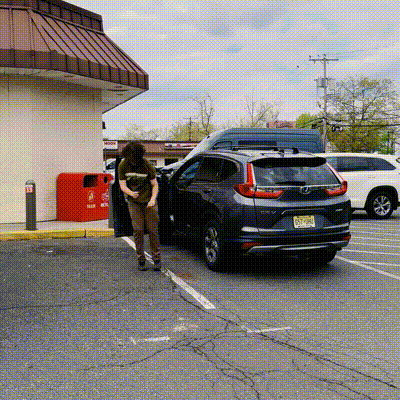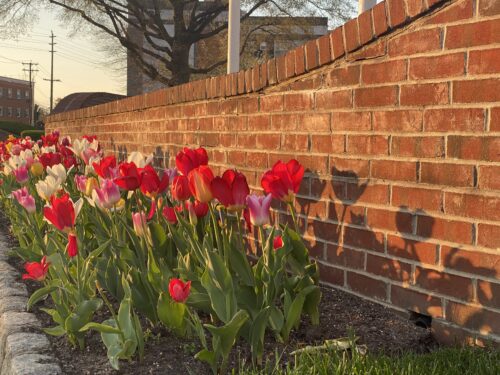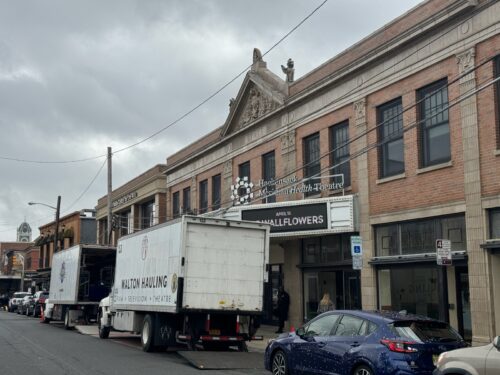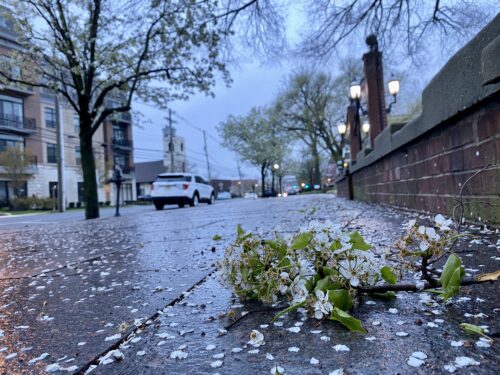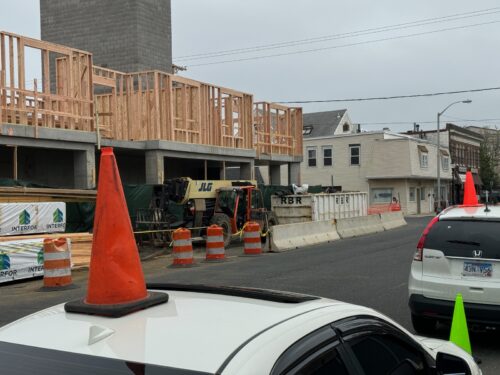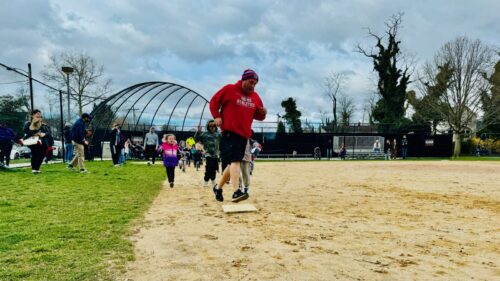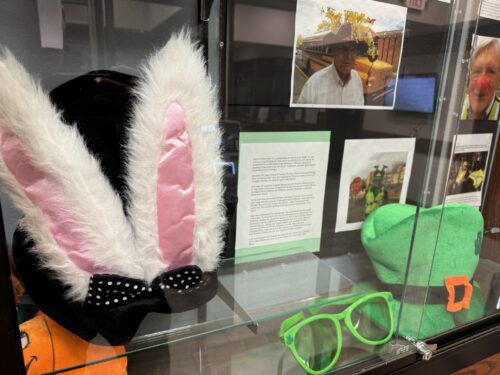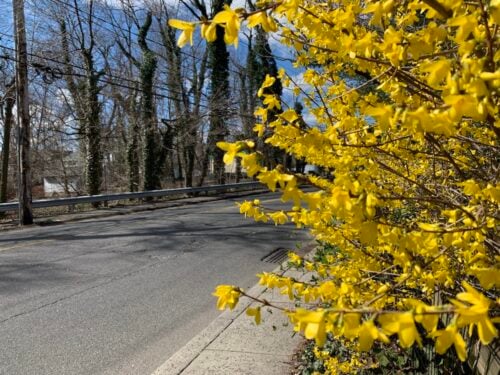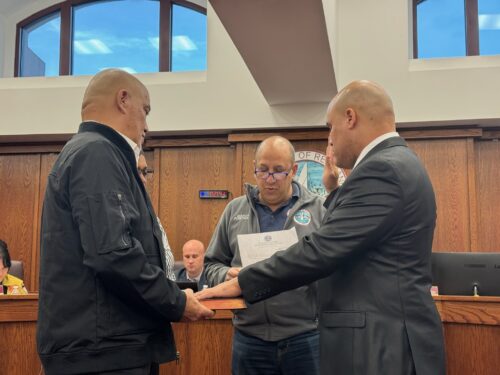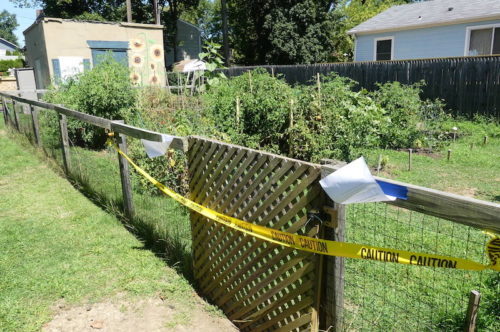
By JOHN T. WARD

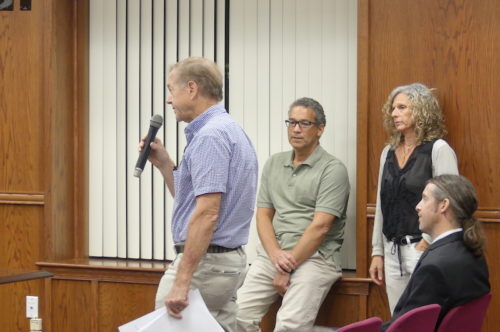
The borough shut down the Marion Street plots August 9 in response to a neighbor’s claim of elevated lead in the soil at the facility.
According to a report about subsequent testing overseen by the engineering firm CME Associates, soil samples showed lead below levels considered unsafe at planting depths of up to two feet, according to a borough summary of CME’s findings issued September 3.
The borough announcement noted that “while lead was detected at various concentrations in the soil samples, none of the results indicate any lead contamination above New Jersey Department of Environmental Protection standards in the top two feet of soil, and no immediate response is needed by the NJDEP for the soil.”
At the council’s semimonthly meeting Wednesday night, Mark Halloran and Deb Jellenik, a married couple from Mori Place, and Tim Zebo, of East Bergen Place, voiced concerns about testing and the borough’s attention to the matter.
Halloran noted that while the CME tests showed no lead at concern levels down to a depth of two feet, “in fact, there was a hit above residential cleanup standards at between two and two and a half feet” in one of the 17 samples.
Given that the root zone is at variable levels, “I thought it was a little misleading, to be honest with you, when that was summarized in the report from CME,” he said.
Halloran, who identified himself as a part-owner of an environmental consulting firm, asked if there had been any “deep research” into possible contamination by heavy metals prior to the opening of the garden seven years ago. He also asked about a timeline for future testing.
“I did not and do not have a sense of urgency from the city on the responses I’ve gotten to date” to emails he’s sent, Halloran said.
Business Administrator Ziad Shehady, who’s been working for the borough since May, 2018, said borough employees could find no records regarding testing prior to the garden’s opening in 2013. But his attention, he said, is not on the past, but the present and future.
“The perception that there’s no sense of urgency could not be further from the truth,” Shehady said. He said immediate action, including an indefinite shutdown of the facility, public disclosure and direct communication with plot renters, was taken “from the minute this was reported to the borough.
“We treated it with a sense of urgency out of an abundance of caution,” he said. Moreover, the descriptions of what the testing showed “were not our own characterizations, they were a statement from the DEP themselves,” he said, referring to the New Jersey Department of Environmental Protection.
“However, regardless of what the numbers show, we agree that there is concern there, which is why we’ve kept the garden closed and we indicated that we would do further testing,” Shehady said.
The borough is awaiting recommendations from CME regarding additional testing and remedial action, he said. Once those are received, authorization and funding for additional action would have to follow legally mandated procedures, he said.
“We are moving as quickly as we possibly can within the laws,” he said. “We understand that there are more questions to be answered, and we are going to do that.”
Jellenik raised concerns about the possible health effects of working in the soil and eating its produce.
“I’ve had my hands in that soil for seven years,” she said. “I’ve been below what you call the root zone, and that hot spot was in my plot.”
But before she or others can be adequately tested by a physician for the presence of specific contaminants, “we need to know exactly what’s in the soil,” she said.
Zebo said he and his wife have also been gardening in the facility for seven years, and have served its produce to their grandchildren.
He said the CME analysis “seems to be a relatively low-quality analysis, in terms of parts per million.”


